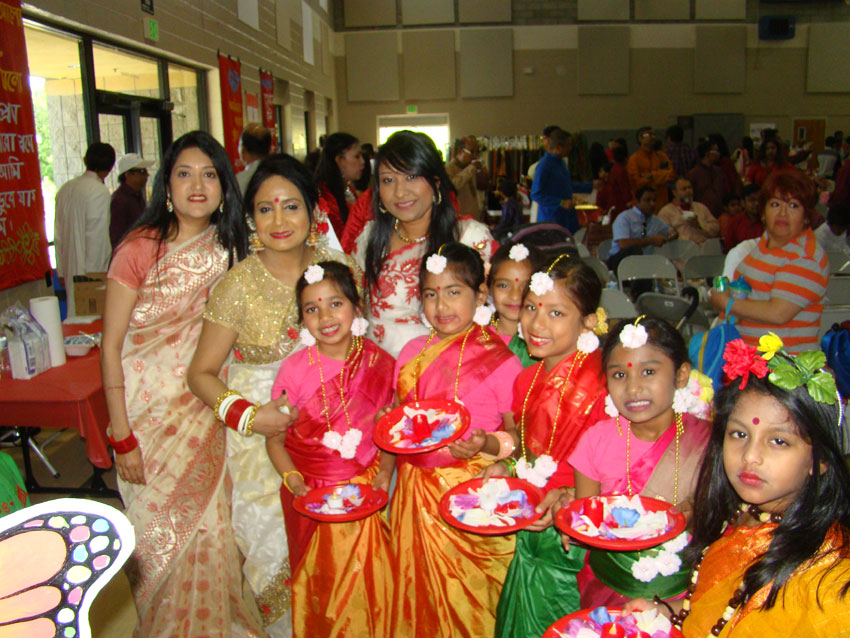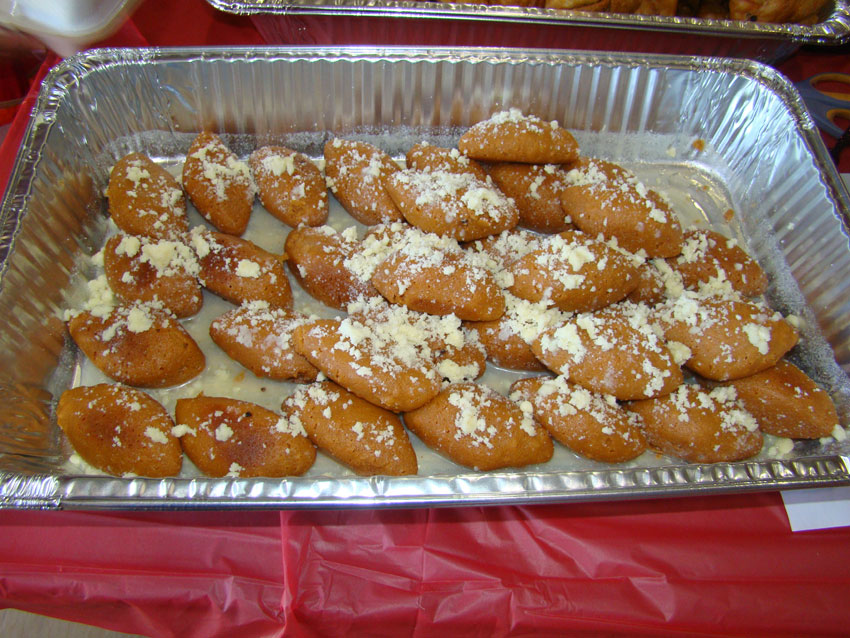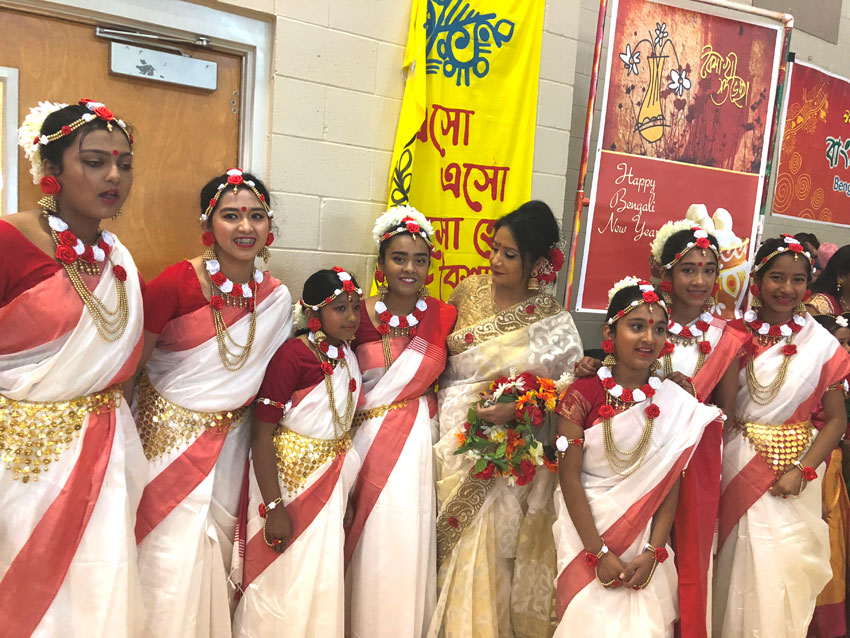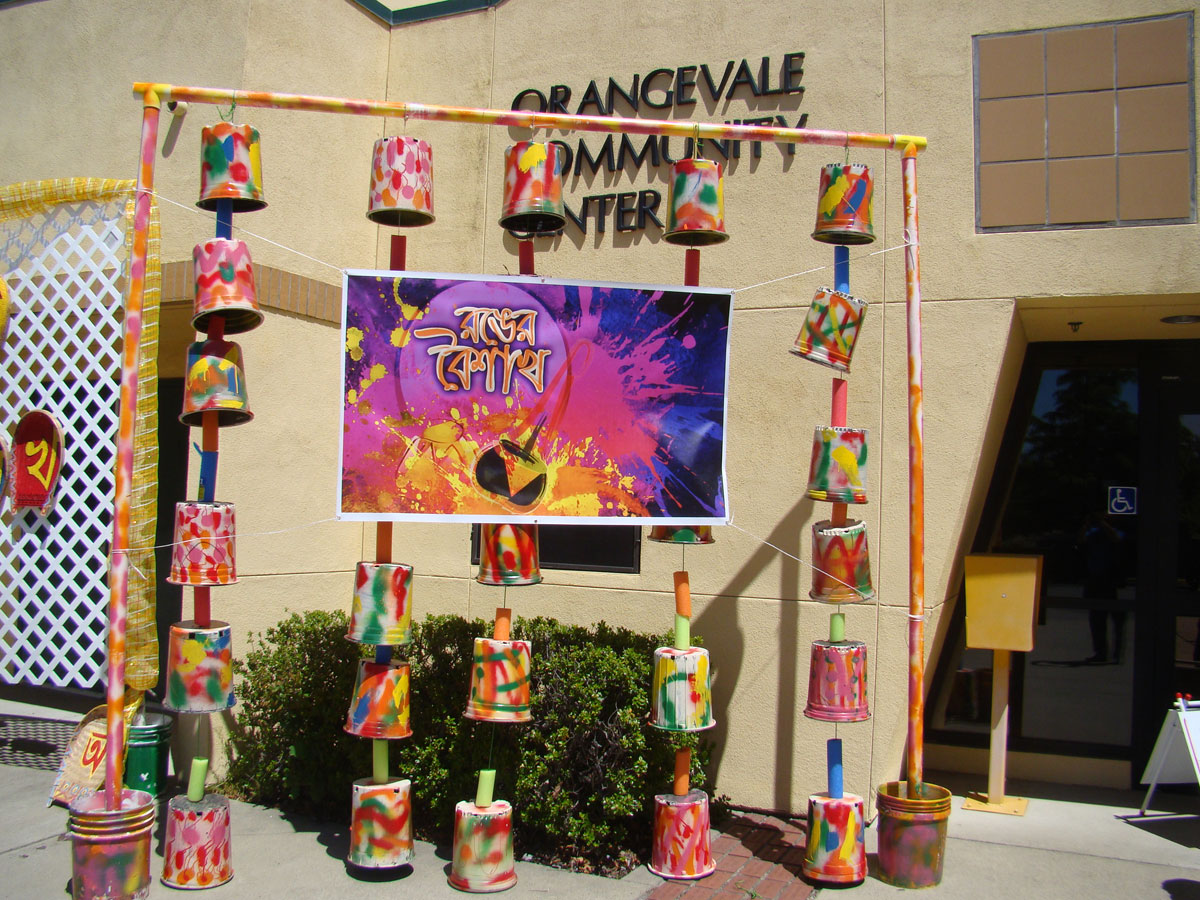Bengali New Year Celebration in Sacramento
Decorated entrance. (All photos: Ras H. Siddiqui)
The year 1425 of the Bengali calendar was heralded worldwide on April 14ththis year, with the first day of the New Year falling on April 15th. A week later on April 21st, the Bengali community in Sacramento, California once again celebrated the occasion with a colorful “Boishakhi Mela,” with a large gathering at the Orangevale Community Center, writes Ras H. Siddiqui.
The first day of the New Year in Bengal is called “Poila Boishakh” and people from both Bangladesh and West Bengal (India) along with their Diaspora worldwide use this occasion to connect with their ethnic and cultural roots. This annual event in Sacramento is a wonderful extension and expression of a very rich Asian sub-culture and is organized aby the Anandamela Team, which has been hosting it locally for the last 11 or 12 years. It has now become the largest annual Bengali cultural event in the Northern California. People travel from as far away as San Jose, San Francisco, Fresno, Marysville, and Reno, Nevada, come and perform here to showcase their Bengali identity.

The Anandamela team’s leader Dr. Najmus Saquib, an engineer, entrepreneur and author, said and we quote “The Boishakhi Mela is important for the community because it helps Bangladeshi Americans of all ages to build and retain the connection to their rich Bengali culture and heritage. Anandamela means “festival of joy” and the goal of the organizers is to instill respect for multiculturalism among everyone by celebrating diversity with joy. This year’s theme was civility, enlightenment, and tolerance showcased by a dazzling opening dance with Bengali Nobel Laureate Rabindranath’s Tagore’s song – “Touch my soul, Oh Lord/ With the light of thy fire.” Children, as young as three, and adults performed numerous Bengali dances, songs, and poems to the delight of the audience.”

Poila Boishakh also coincides with the other regional festivals like Baisakhi (Vaisakhi) in Punjab. The greater Sacramento area has a very large and active Punjabi population which has been here since the first decade of the 1900’s and continues to have a substantial presence in local agriculture. Bengalis on the other hand are much more recent arrivals and fewer in number. Most are involved in the tech industry and some in small business. There is no restaurant (yet) in Sacramento which serves Bengali cuisine so this event is one other reason to attend. Where else can non-Bengalis get to taste authentic Ilish Mach, Pitha, Jhal Muri, Chom Chom, and other delicacies? From personal experience from living in Dhaka during the 1960’s this writer can vouch for the fact that Bengali dessert are divine. I often accompanied my late father Abdul Hafiz Siddiqui a PWD Engineer to the outskirts of the city to Savar to bring back the finest Roshogulla and Chom Chom sweets our family has ever tasted. And the Jhal Muri sold outside what is now known as St. Joseph Higher Secondary School plus the sweet Doi (yogurt) from Bogra still linger in memory!

This event ran from 11:00 AM to 5:30 PM. and consisted of numerous on-stage performances. Bengali culture is rich in music, dance and poetry and no gathering is complete without the sharing of songs of Tagore and Qazi Nazrul Islam. The infusion of western music into Bengali performances is not new and made its presence felt here too. An old classmate comes to mind as a member of the Underground Peace Lovers band which came into being in 1972. Many western instruments are now used at this Boishakhi Mela too but the songs are still in Bengali. It was great to see the American born children of this community fully participating and showing pride in their identity here.
The six plus hour event had five main segments beginning with Aguner Poroshmoni, Children’s Segment, Adult Segment, Band Segment and Closing Ceremony. This writer could not stay for all of the activities but it was great to once again attend this wonderful display of Bengali culture in Sacramento. Happy Bengali New Year!


